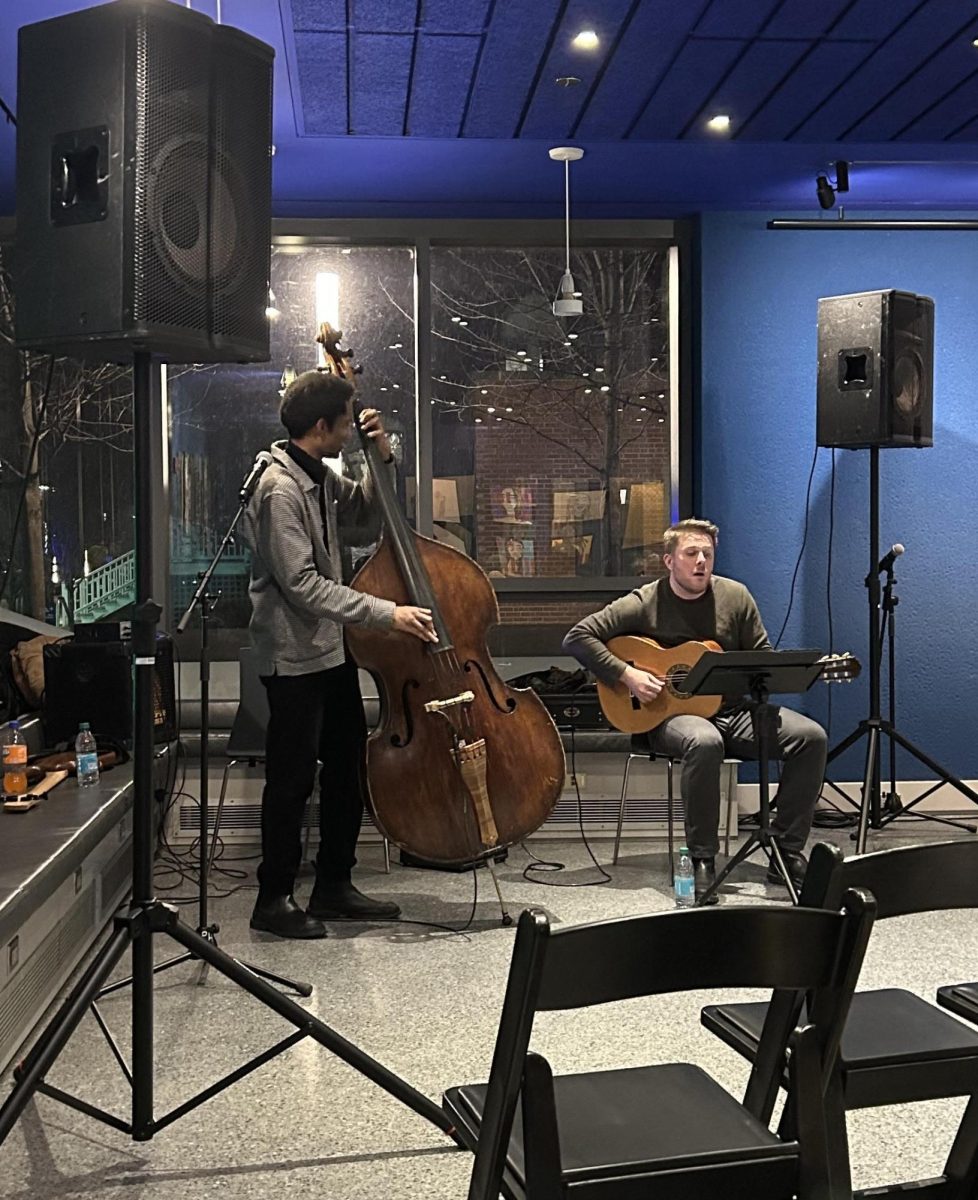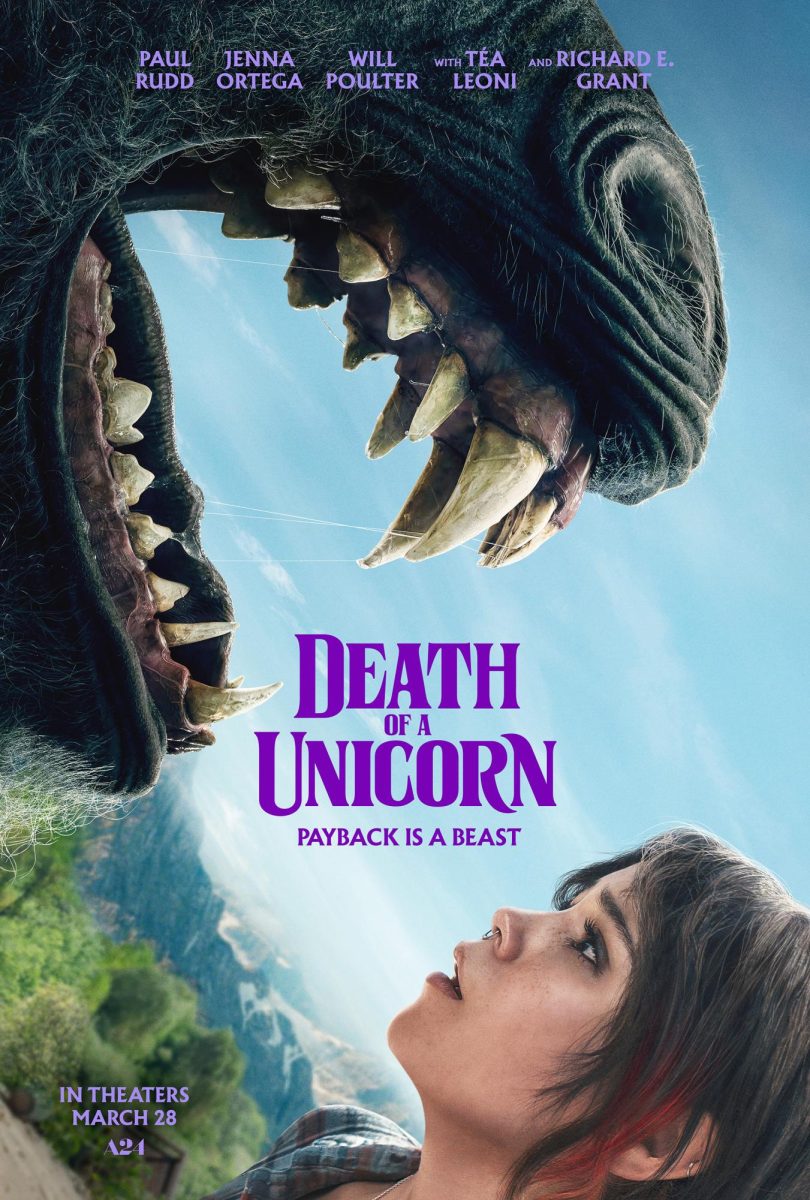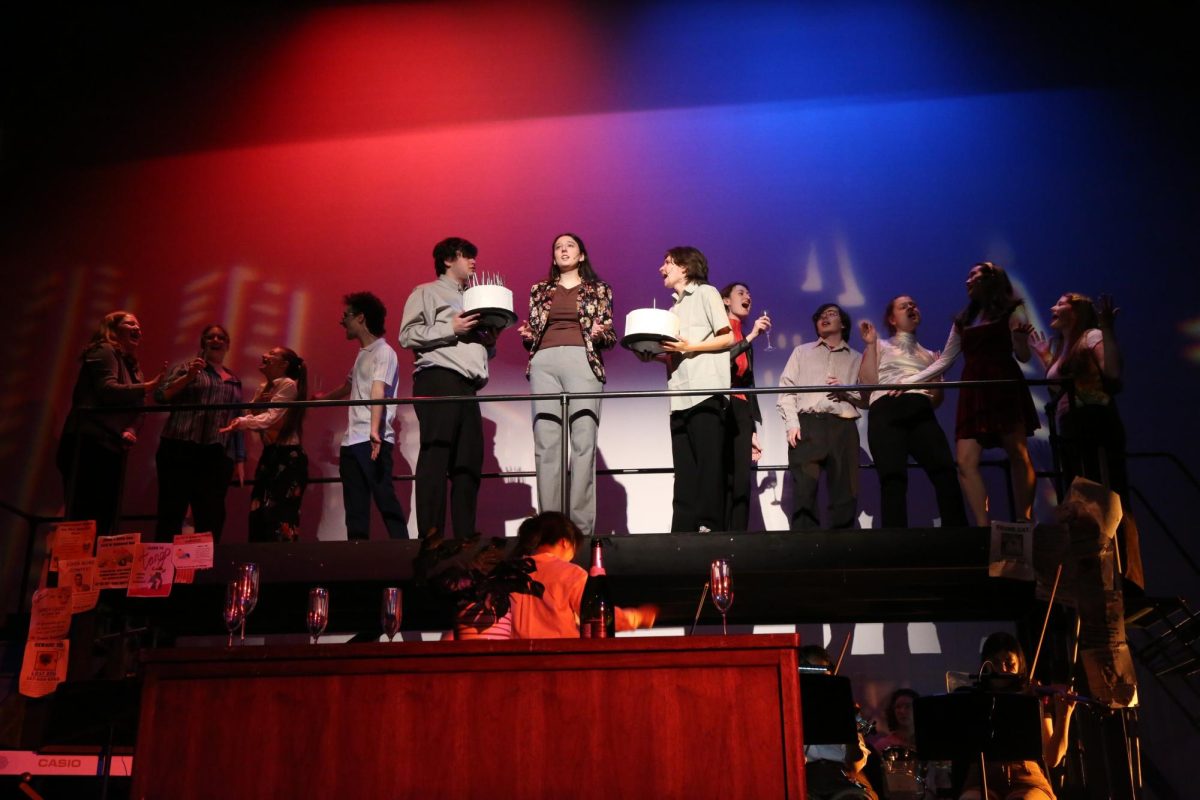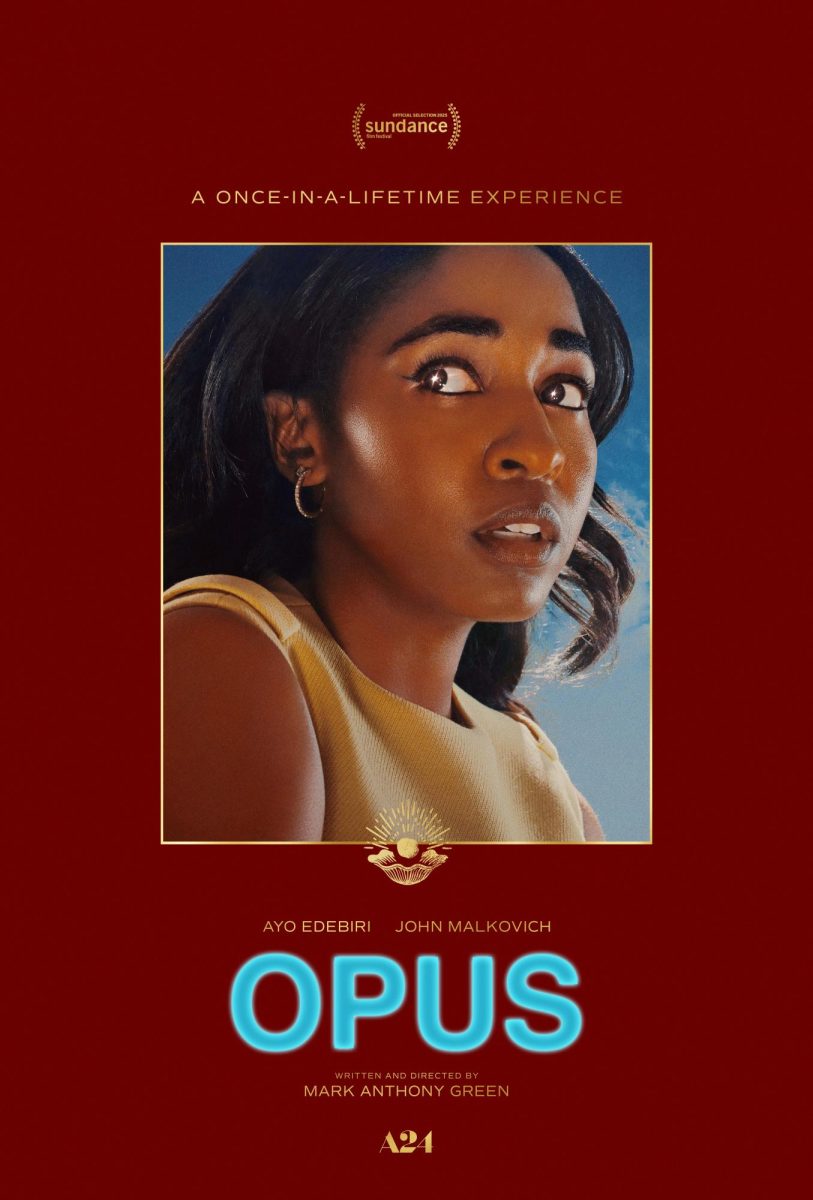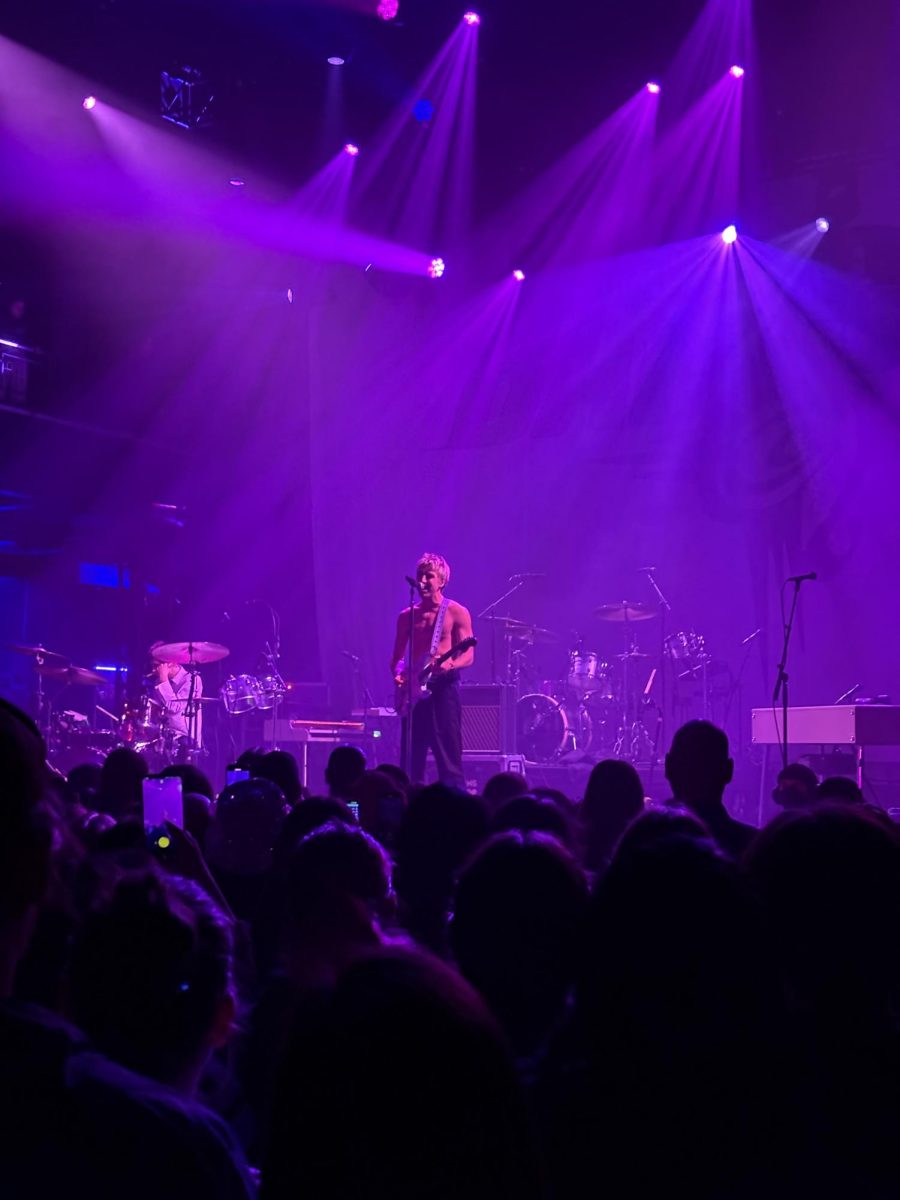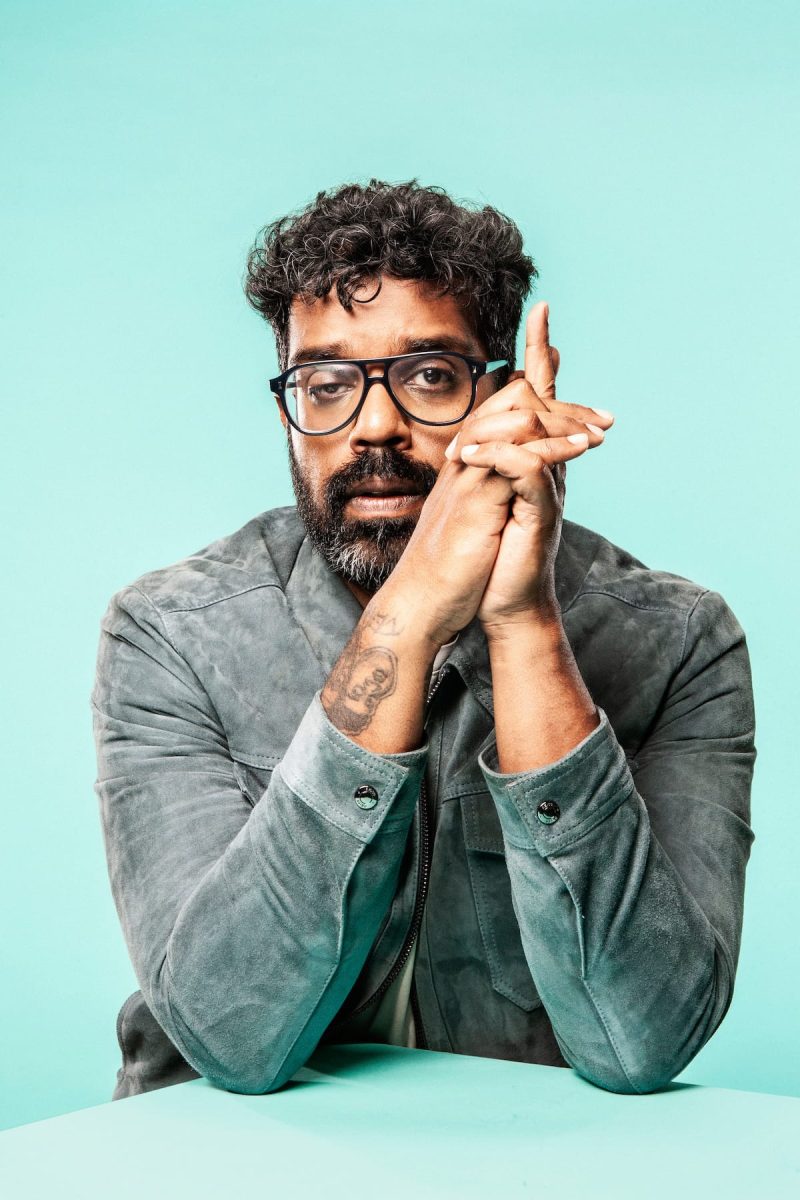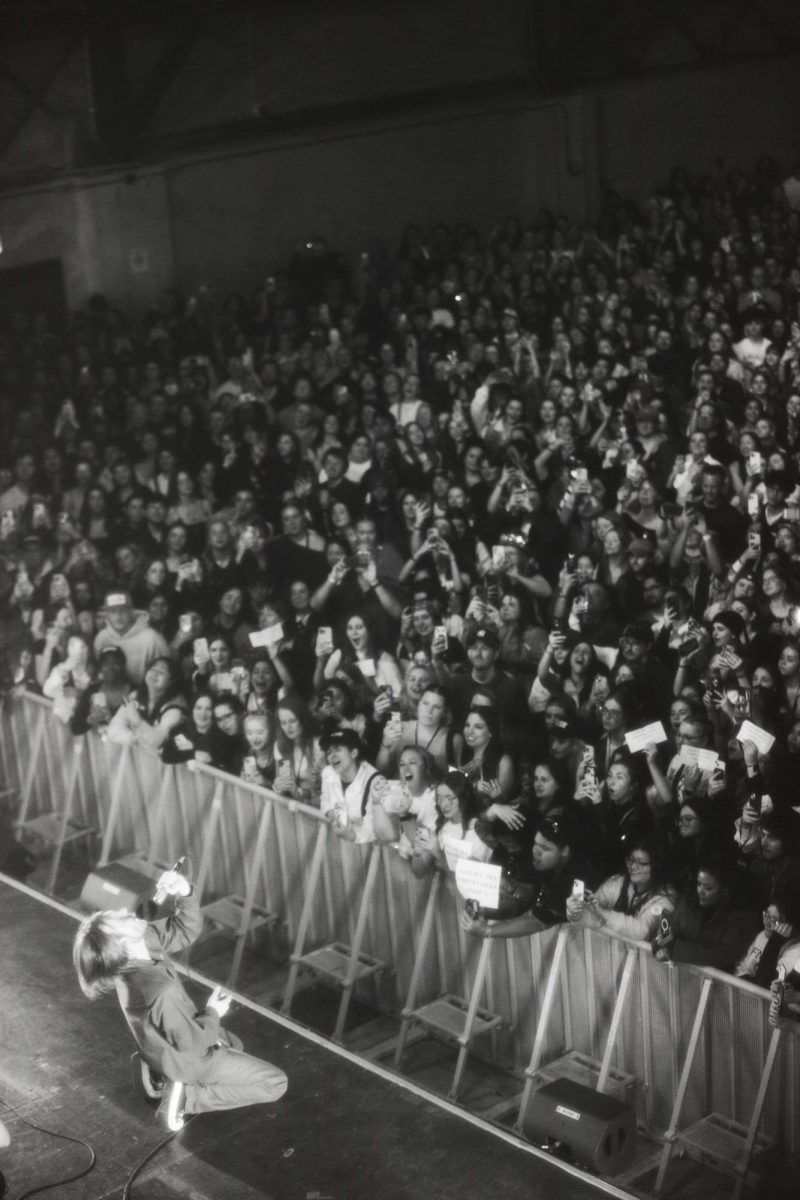The Jeremiah Review stole away the first “Third Tuesday Jazz” event of 2025 as partners of the Hyde Park Jazz Society. Despite the frigid weather—solidly in the negatives—jazz enjoyers made the trek to Café Logan. Early birds had the opportunity to listen to the band rehearse their set pieces and discuss musical interpretations. The band of two, composed of Jeremiah Hunt on bass and Sam Mösching on guitar, brought with them a warm, jovial atmosphere that permeated the café as soon as they entered.
The two were introduced as the “warm and hot” duo. After a round of pre-concert jokes, the performance kicked off with dim lights and tight seating, drawing people closer to the music. The duo certainly lived up to their name, although who was hot and who was warm switched as the two played off one another. Their shared musicianship was a marvel to behold. Throughout the first piece “Mr. Bow-Tie,” the rich, sensuous hum of Hunt’s bass spread throughout the café, laying the groundwork for Mösching’s guitar to cut through the deep, velvety sound with a vocal quality accompanied by tighter vibratos.
The two performers were immediately in the groove, smiling, nodding, and looking at one another like they’d been playing for hours, hardly pausing before moving onto “House” with the groove coming from “Skain’s Domain” and rearrangements of “Superstars” done by Hunt. The crowd was certainly won over, with the quiet conversations that punctuated the first set replaced by enraptured faces admiring the flashy runs of Mösching’s guitar. Hunt quickly capitalized on that excitement, a very sneaky bassist who plays a supporting role until he suddenly occupies the lead. The guitarist builds out his tension and releases it in his solos. A passion for the music and the two musicians had clearly entranced the crowd. As the two attempted to introduce their next piece “Bittersweet,” an original composition, the crowd wouldn’t even let them finish before cheering and clapping. In return, they received a break from sheer excitement: the piece was slower, and somber, with the guitar’s melody adding bits of melancholy. The two instruments seemed as if they were playing their own melody, drifting away from one another and back together musically and beautifully. Hunt is particularly skilled at building up emotion and tension only for it to be wonderfully released in gratifying runs that relieve and warm the heart.
The set eventually concluded with “The Finish” and “My Shining Hour,” where the two smiled at each other like kids on the playground. A jovial atmosphere soon filled the room, especially as the duo both had a slight spring in the knees. The crowd was certainly swept off their feet by the flashiness and technicality of the pieces too; even those working at the venue could be seen nodding along to the music and heard humming the tunes. The guitar even adopted a groovy wide vibrato, carrying a sense of happiness seemingly free of the worries of adulthood. Though lacking build-up and instead jumping into a straight release of excitement, the crowd took this energy into the intermission with cheering, clapping, and warm chatting. The café suddenly felt like home, with the performers unable to make it off stage without being stopped.
While the first set energized the audience, the second set was intimate, close, slow, and deeply emotional, especially with a slightly smaller audience as the show ran late into the evening. The set was consisted almost entirely of original compositions from both Mösching and Hunt. Despite switching to electric bass and losing the wooden bass’s warm tone and resonance, Hunt made great use of the technical abilities of the electric counterpart. If instruments could dance together, this would be their dance. The dissonance brought brief moments of interlude only for the two to come back together softly; the audience was certainly entranced and enchanted as many people had eyes locked on the stage and had even stopped snacking for the piece. The reverb and ability to hold onto notes on the electric bass made the piece more sensuous, almost as if the two instruments intended to dance the night away until the very end, with applause lingering almost as if a reflection of the love of the two musicians.
The duo followed by playing an unnamed tune in 11/8 beat composed by Hunt. In the post-concert interview, he claimed it was about “the only female besides my mom, sister, and grandma who has ever loved me truly.” Although he considered calling the tune his grandmother’s name, “Shira,” the name was still up in the air. The piece gave the feeling of what could only be described as an ascent: as if floating into the sky, traveling above the clouds, and sinking into their pillowy softness. The audience seemed to be imagining it too, their eyes closed, heads bobbing, and slight smiles creeping onto their faces. Finally, the set ended with “Olive,” an original by Mösching, a tune that Hunt felt was like “a profession of love,” though this was happily denied by Mösching, who wanted the tune’s meaning to be “left in the air.” The music rang so clearly you could feel the notes vibrating in your body almost as if it could reach out and touch you. The piece was over before the crowd could clap, and the duo embraced one another.
Despite the concert lasting nearly two hours, people seemed reluctant to leave as if still entranced by the music. People chatted about the concert and with the musicians, and it seemed to achieve the goal the event had laid out: to be a testament to the return of jazz to the South Side. It was Hunt’s first time playing with his own group in Café Logan, but set on continuing to perform, he invited people to attend other performances and listen to his CD, called 33, for a taste of more Chicago jazz.



